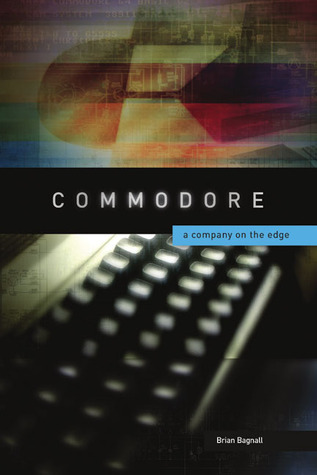
Most publications these days, when focusing on the early years of the personal computer industry, rarely look beyond the well-established companies of Apple, Microsoft and Intel. In Commodore: A Company on the Edge Brian Bagnall attempts to expand the common narrative by exploring Commodore‘s influence in creating the PC industry. Alas, this book suffers from Bagnall’s bias about this problem and it becomes a distraction from the very first paragraphs of his book, leading to a number of fundamental issues with his telling of Commodore’s history.
Bagnall’s desire to “correct the history” and re-establish Commodore as a household name boils down to two points. That Commodore was first and that they shipped the most units.
Supporting this first claim leads Bagnall to play a bit fast and loose with key facts. By my count he either directly claims or implies that Commodore was first with; a cheap 8-bit microprocessor, an integrated computer, a modem, to develop a layered OS (with dedicated kernel and user space code), GUI, digital camera and a port of Unix for microprocessors. Yet many of these claims ignore similar work at other companies or, that in many cases, that Commodore’s work didn’t extend past the initial development stage.
As for most shipped units, Bagnall fails to put Commodore’s sales in context with its competitors. On the most basic level, he fails to specify a common unit of measure/time period/model to measure against, leaving one to question each comparison when made.
These errors point to a serious lack of critical analysis of Commodore’s rise and fall. This lack of analysis is most present in Bagnall’s primary research, which begins and ends with a handful of former Commodore personnel. Thus, the facts provided are first-person, anecdotal accounts, many years after the events took place. Overall, Bagnall doesn’t question or challenge his sources directly.
For example, while questions of Jack Tramiel’s business style is notable in the various stories told throughout the book, in the eyes of Bagnall, Tramiel can do no wrong. Every questionable decision or action made by Tramiel is “genius”. Since Tramiel and crew could not have planted the seeds of their own destruction, the “baddie” of this story is financier and board member Irving Gould who handcuffs Tramiel’s access to funds. In this telling, the bad blood between Tramiel and Gould eventually leads to Tramiel’s departure and thus the beginning of the end of Commodore. That Tramiel fundamentally misunderstood how the computer market was different from the calculators his company previous produced and sold gets little consideration.
History is written by they winners. An obvious explanation Bagnall seems to have missed while he lambasts why Apple, et. al. get all the credit for “inventing” the PC industry.
Don’t get me wrong, Commodore was first in many aspects of the personal computer revolution. Their work should be remembered and studied. But this books fails to place Commodore in the proper context of that story or why the company is no more.